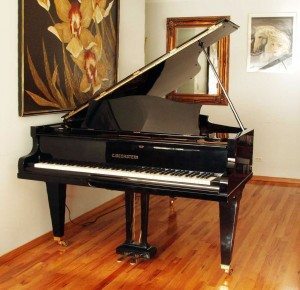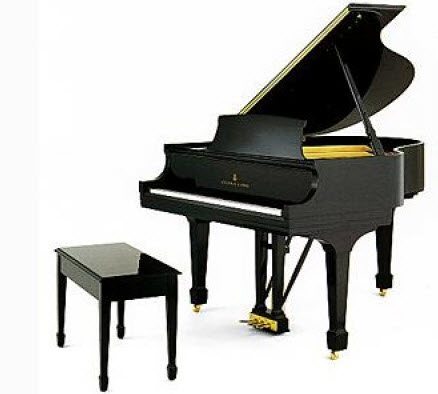When considering buying a piano, bear in mind that a piano is not an investment that one 
While the quality of a piano is generally reflected in the price, piano quality is contingent upon a number of factors, namely tangible, though brand appreciation carries a lot of weight. Bear in mind that price is quantitative, quality is subject to preference. Here are some factors to consider when determining the quality of a piano:
Sound
This is the single most important factor that you should take into consideration when looking for a piano. Because most pianos will outlive their owners, it’s important that the piano that you choose sounds right to you. Each brand sounds a little different, and just as everyone has a different taste in music, you can expect to have a unique taste in piano acoustics. Do not settle for a sound that you may change your mind about simply because a sales rep is doing his job. Chances are, he will not be around to hear you play. Before you decide on a piano, play it, or have the sales rep play it for you.
Playability
Another factor that contributes to piano quality is playability. Pianos are used to play classical music, which often requires quick repetition. If you have difficulty moving your fingers from one key to the next, or the keys are not positioned in a manner conducive to rapid scaling of the notes, it does not mean that the quality of the piano suffers. It simply means that the piano in question is not right for you. No one chair fits everyone perfectly. No one piano can be expected to do the same. That being said, your decision to buy should be contingent upon your personal fit.
Aesthetics
Pianos are magnificent musical instruments, but they can be a bit bulky. From a designer’s perspective, a piano is, for all practical purposes, a piece of furniture. One of the ways in which to determine piano quality is to run the style, color, and size against the decorative aspects of the room in which it will sit. Pianos are not only bulky. They are extremely heavy, so be prepared to look at it for awhile. There is nothing worse than having a piano delivered to find that it does not match your home decor.
Longevity and Durability
Quality pianos can be expected to last your entire life. This is because they are made with higher quality material than pianos that may need major repairs fifty or sixty years down the line. Longevity and durability increase the value of a piano to varying degrees, depending on the craftsmanship, and the material used. To this extent, quality is reflected in the price point. Most pianos come with a lifetime warrantee, but first time buyers should scrutinize the tangible qualities that would influence the price of a piano before buying. Often, pianos of poor craftsmanship, built of less than reliable materials, sell for much more than they are worth. Do your research.







